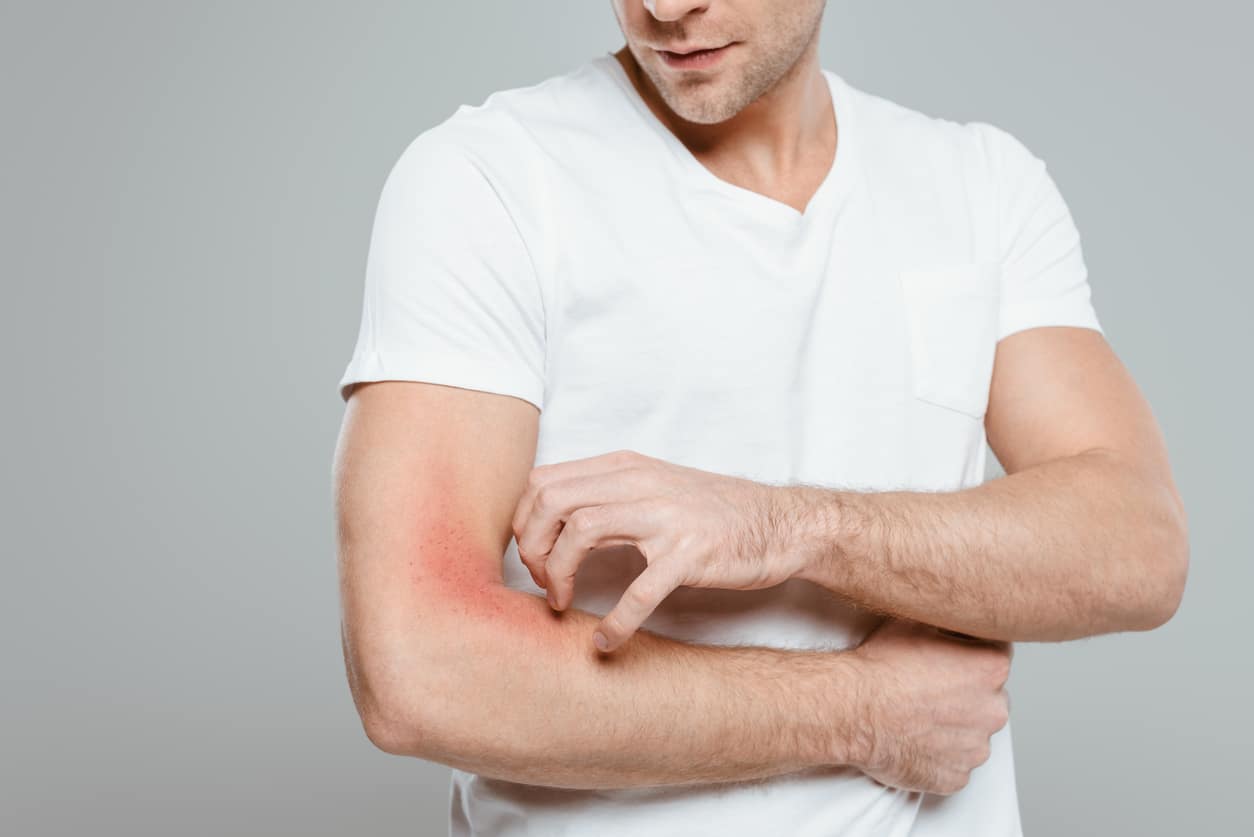Contact dermatitis is a type of skin allergy that occurs when you come into contact with a particular allergen. It can cause symptoms such as:
- An itchy rash
- Dry, cracked or scaly skin
- Bumps and blisters that can ooze and crust
- Swelling, burning or tender skin
These symptoms can be very unpleasant and interfere with your daily life. If you suffer from skin allergies, let’s take a look at some steps you can take to manage your symptoms.
Avoid Your Skin Allergy Triggers

With any allergy, the best way to avoid allergy symptoms is to avoid contact with your specific triggers. Therefore, it’s essential to know what causes your contact dermatitis. Several common culprits include cosmetics, jewelry that contains nickel, hair products, soap, rubber gloves, plants, bleach and detergents. However, other substances can trigger symptoms as well.
If you’re unsure what’s causing your symptoms, your medical provider may suggest allergy testing in the form of a patch test to help identify what substances irritate your skin.
Soothe Skin With At Home Methods
There are many things you can try at home to help find relief for your symptoms when you’re having a flare-up. Options include:
- Cold compresses
- Oatmeal baths in cool water
- Calamine lotion
- Trying an over-the-counter anti-itch cream or antihistamine from LoRex Drugs or another local pharmacy
Prevention Methods
You can also take certain steps to prevent or reduce your chance of experiencing contact dermatitis:
- Use fragrance-free moisturizer after bathing to help seal in moisture (make sure to spot test first to make sure it doesn’t cause a reaction)
- Wash new clothes before wearing them
- Wear protective clothing when near irritating substances
When To See a Medical Professional for Contact Dermatitis
You should seek medical care if you experience any of the following:
- Your rash is severe or widespread
- Your rash involves your eyes, mouth or other sensitive areas
- The itchiness is preventing you from going about your day
- Your symptoms don’t improve within a couple of weeks
Sometimes, at-home treatments aren’t enough. In that case, your doctor may recommend prescription-strength treatments. According to the Mayo Clinic, you may be prescribed the following treatments for contact dermatitis:
- Steroid creams or ointments that are applied to the skin to help soothe the rash. Your doctor will give you specific instructions on how frequently and for what duration to apply it.
- Oral medication. In severe cases, pills may be required to help reduce swelling and itching or fight an infection that may have developed.
For more information or to schedule an appointment to have your skin allergy symptoms evaluated, contact Carolina Pines ENT today.